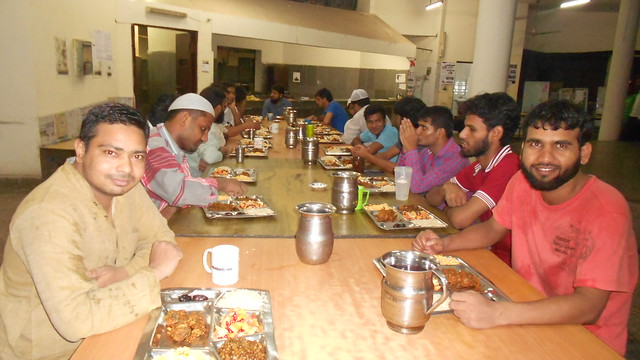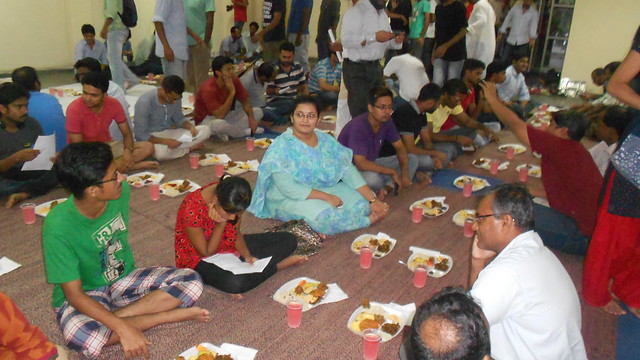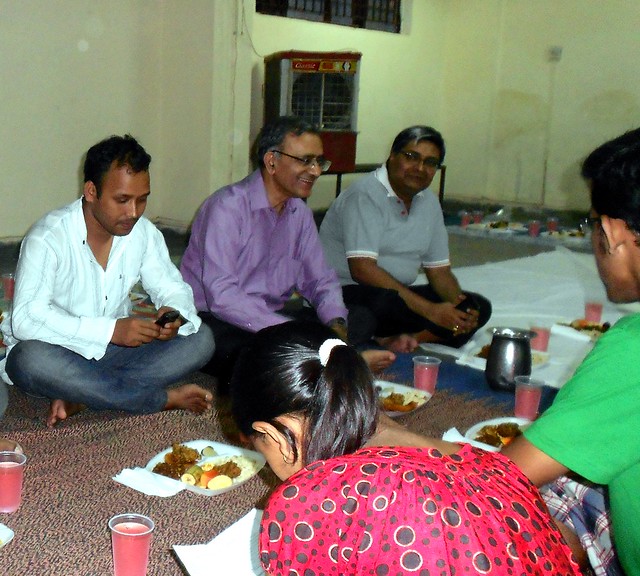By Mahmood Asim, TwoCircles.net,
Similarities are many and differences are few among various sects of Muslim community. But the focus unnecessarily & unfortunately remains on those few differences. To strike an example we find during the month of Ramadan Muslims fight on number of Raka’at of Traweeh Namaz and the bone of contention majorly revolves around whether to offer 8 Raka’at or twenty .

But the Muslim students of reputable Jawaharlal Nehru University (JNU) are quite moderate in this regard. Here you find examples that a person from Deobandi sect not only offers 8 Raka’at Traweeh but also leads it. And to satisfy himself he offers remaining 12 Raka’at alone. Farooque Azam Qasmi, a pass out from Darul Uloom Deoband who lives in Periyar Hostel of JNU leads Traweeh of 8 Raka’at. When asked about this moderation Farooque said that “there is enough space in Islam for the difference of opinions but to fight on those differences has no space at all,” Qasmi said emphatically.
“All these differences are just related to concepts in Islamic jurisprudence that corresponds to preferables and less desired ones, then why so much noise over this, we should widen our thoughts in this regard,” Qasmi added. Compromise did not limit here but a well-known personality, professor at JNU Khwaja Ekram who is a director of NCPUL and follows the Bralavi creed also offers only eight Raka’at of Traweeh.

These are not the individual examples of few but you find also that Ahle-e-Hadees who are quite famous for their rigidness also show moderation in JNU. Qari Faisal, a research scholar in JNU who follow Ahle-e-Hadees sect leads 20 Raka’at of Traweeh in Mahi- Mandvi of JNU Hostel. Many others offer Vitr, a three Raka’at special prayer according to Hanfi Sect of Islam.
Going one step ahead JNU also provide the example of egalitarian society that how Shi’a and Sunni sects even compromise with each other. Though according to Shia sect you have to break the fast ten minutes later but Raza Abbas, a research scholar in computer science who is Shi’a by creed sits with his Sunni friends for iftar. And one who shares thali with him from Sunni sect wait for him till his time starts. When asked that why you prefer eating iftar with Sunni students, Abbas replied “Ijtemayiat (unity) is primary thing and to maintain that I break iftar with every one, and this pleases me personally,” Abbas said with a satisfied look.

JNU VC Prof. Sudhir Kumar (in purple shirt) joined students for iftar
Syed Mohammad Kazim, who follow the Shi’a creed often break his fast according to Sunni timing. Kazim believes that to be united as mere Muslim is need of hour. Referring the incidents happing in Iraq Kazim seems worried and said “clash between Shi’a and Sunni in Iraq and Syria giving wrong message to our Non-Muslim brothers and they looked towards all happening with taunting view.” With a worried tone Kazim adds “earlier it was referred that Muslims have 56 countries but now people ask whether that one is Shi’a country or Sunni, who gave this message to them,” Kazim wonders. “It is only because of politics they want to divide us but we should talk over commonality not the differences,” Kazim added.
Nadeem Akhtar, a research scholar wait ten minutes to open fast with his shia friend, he thinks that by doing so he is doing nothing wrong. Talking to TwoCircles.net, Nadeem says, “main reason behind our backwardness is this artificial divide over differences, these are the differences made by us and should remain unfocussed as our agenda if we want to move forward.” Core of the issue echoed by Shawez Ahmad who is a research fellow in Drug Discovery, when he declared “ I am not in need of any suffix or prefix as a Muslim, when Quran says that you do not die until you are Muslim then this is the only label I love to embrace”, Shawez concluded.
Link:
Ramadan 1435: TCN series

